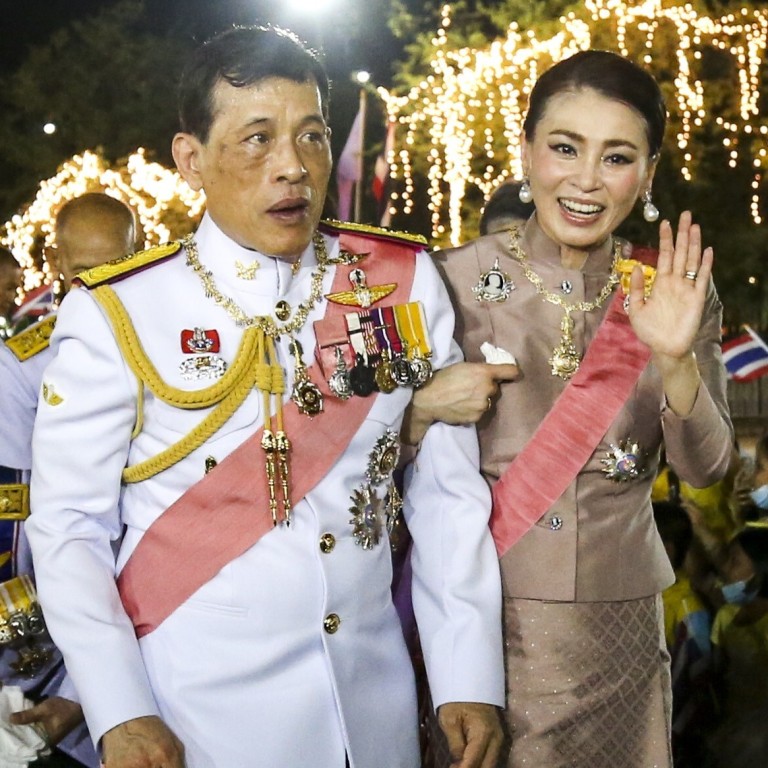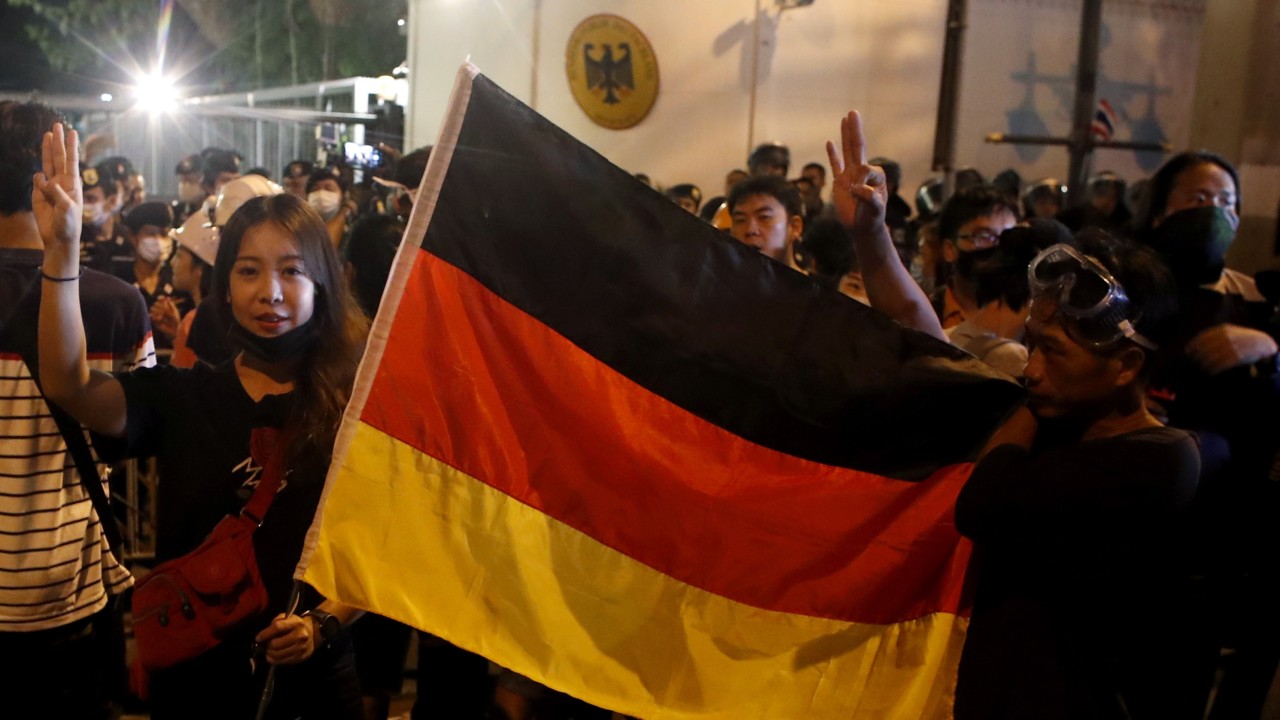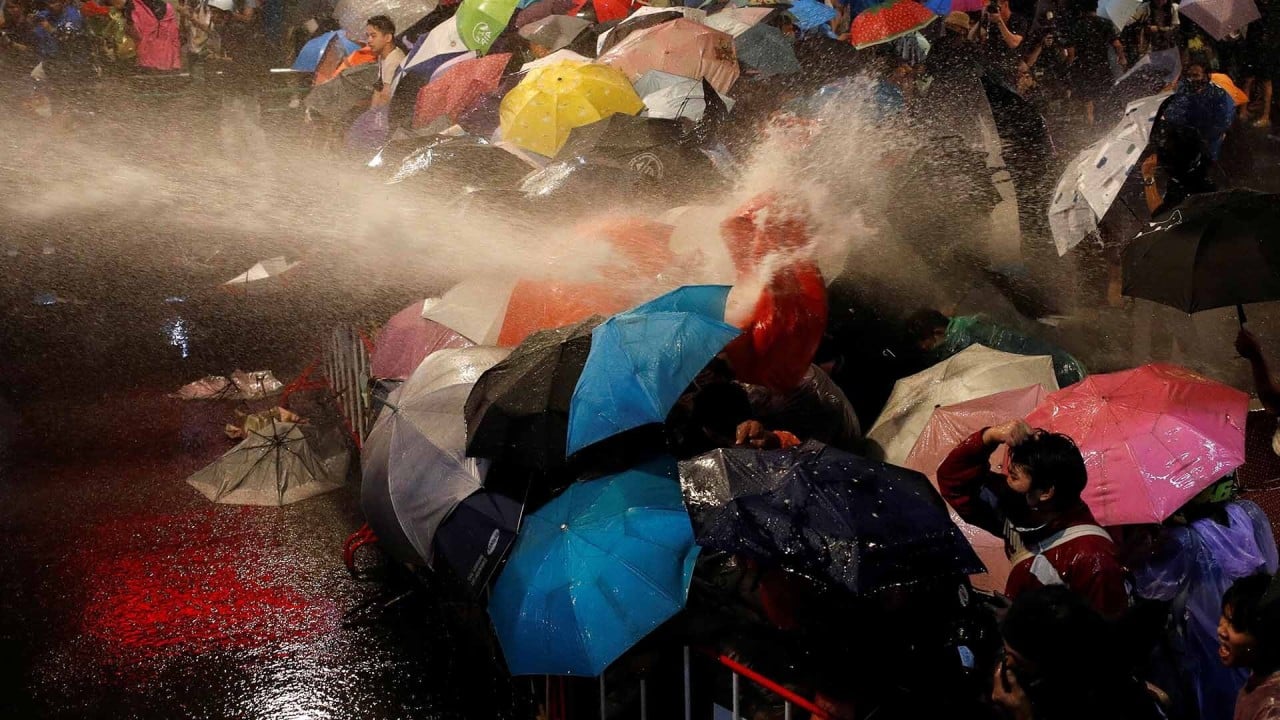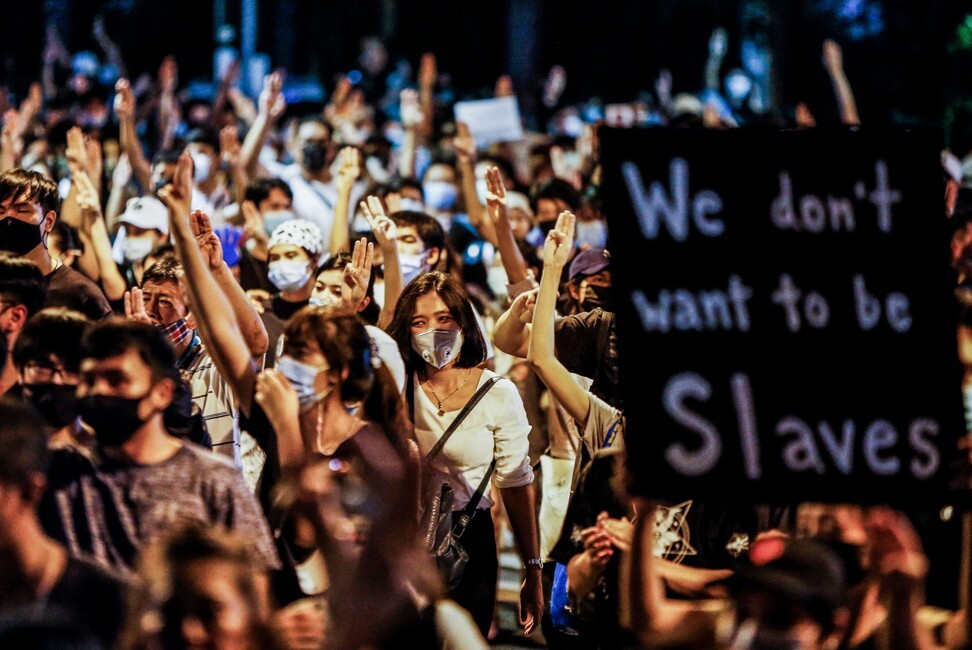
Thailand protests: pressure mounts on German government over king’s residence
- King Maha Vajiralongkorn’s residence in Bavaria has come under the spotlight amid growing protests against the Thai government and royalty
- Berlin says it is investigating but legal experts say it would be hard to prove that the monarch is violating any laws by issuing orders for Thailand from Germany
Demonstrators this week appealed to Berlin for support, stirring debate about whether the Thai king conducting affairs of state while in Germany would constitute a violation of his visa and therefore grounds for expulsion.
Why are Thai people protesting and what will happen next?
German Foreign Minister Heiko Maas this week reiterated that he was looking into the matter and warned of “immediate consequences” if the monarch was engaging in activities found to be against the law, but legal experts said there were limits to what the government could actually do.

02:27
Thai protesters rally at German embassy, calling for Berlin to investigate Thai king
Stefan Talmon, the director of Public International Law at the University of Bonn, said: “It would be very hard to prove that he is violating any laws. He would be able to conduct affairs of state in Thailand from Germany without violating German territorial sovereignty.”
On the other hand, Talmon said: “Even though Germany cannot prevent the king from issuing orders for Thailand, it is also under no obligation to tolerate his continued presence.”
Talmon noted that German chancellors – including Konrad Adenauer, Helmut Kohl and the incumbent Angela Merkel – spent long periods in Italy or Austria and almost certainly conducted official business while abroad.
“Adenauer loved to be in Italy and we don’t know how many affairs of state he conducted,” Talmon said. “That’s all perfectly normal. What makes the king’s case so unusual is that he has extended his stay in Germany for such a long period of time.”
According to Talmon, there is a limit to the orders the Thai king can issue from Germany. For example, orders of capital punishment or crackdowns on peaceful demonstrations could justify expulsion under international law.
“It could be considered incompatible with the public order if the host state has abolished and is opposed to the death penalty and a foreign head of state were to sign a death sentence during their visit,” Talmon said.
Thailand protests: is Milk Tea Alliance stirring global support?
Greens party MP Frithjof Schmidt, who earlier this month urged Maas to prevent the king involving himself in Thailand’s domestic politics, said he may have violated the terms of his visa and therefore German law.
“I will ask the government again about the legal situation of his stay,” Schmidt said. “His visa was evidently issued with conditions and [stipulating] that policies affecting Thailand should not be conducted on German soil. Conditions can be attached to visas. When I travel to the United States, for instance, as a member of parliament, I also need an extra visa that contains certain such conditions.”
Demonstrations began earlier this year before being derailed by the coronavirus pandemic. They resumed in July and gathered momentum throughout August.

04:40
Thailand protests: How it all started
German newspapers have increasingly covered the topic, with the Sueddeutsche Zeitung newspaper saying this week that “Berlin is being dragged into this by the pull of the protesters and the dispute is turning into an international one.”
“His Majesty the King of Thailand is a monarch who ‘reigns but does not rule’, and performs only ceremonial duties similar to the British sovereign,” the statement said. “In his role as constitutional monarch, His Majesty the King does not involve himself in politics and the daily administration of the state, which are the responsibilities of the prime minister and the government.”
Thai monarchy’s ‘motorcade moment’ heckling shows growing youth disdain
The letter said that information about the monarchy that had been inappropriately politicised would mix the personal affairs of the king with bilateral relations between Thailand and Germany.
Thailand has repeatedly assured Germany that the Thai king is not conducting government business while in Germany, a spokeswoman of the foreign office in Berlin said on Wednesday.
“The German government assumes and expects that no decisions are taken out of Germany that violate German law, international law or human rights regulations,” the spokeswoman said.
In Thailand, the government was working through parliament to ensure that issues raised by protesters were handled “thoroughly as part of an inclusive and exhaustive democratic process”.
Support for the monarchy was “deeply embedded in Thai society”, the letter maintained. “Such profound bonds cannot be easily disregarded, as speculated by observers”.
Additional reporting by Associated Press


